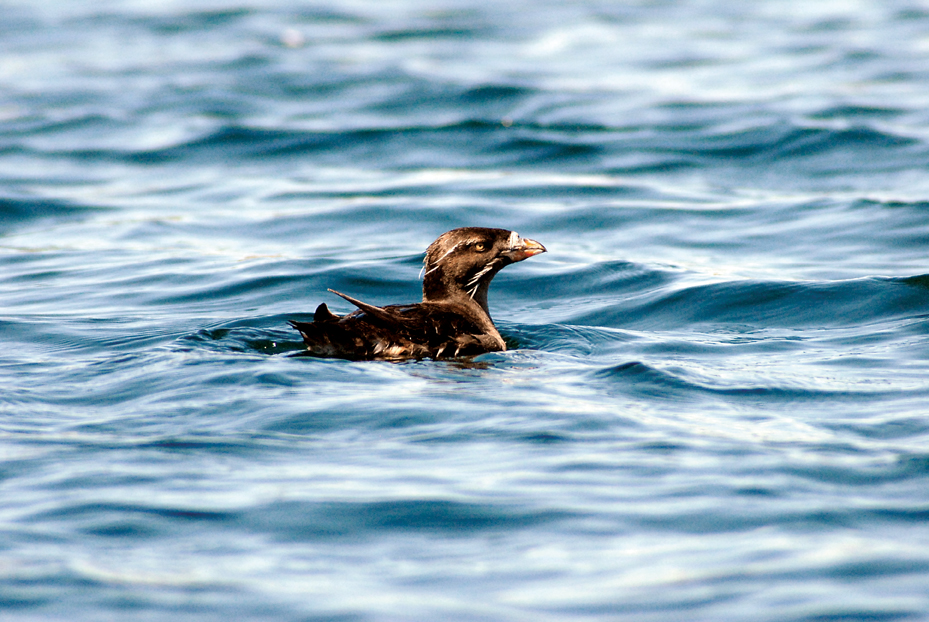PORT TOWNSEND –– Scientists are trying to figure out why hundreds of dead seabirds have washed ashore in the eastern part of the Strait of Juan de Fuca.
About 300 rhinoceros auklets, seabirds closely related to puffins, have washed ashore dead since May, and there isn’t a clear reason why, said Julia Parrish, executive director of the Coastal Observation and Seabird Survey Team (COASST).
“I cannot answer that question because we don’t know the answer to that question,” she said.
“We’ve never seen anything like 300 rhinoceros auklets wash ashore in the eastern Strait. There’s definitely something going on.”
Dead birds have been found at Discovery Bay, Dungeness Spit near Sequim and across the Strait near Victoria.
At this point, scientists are trying to rule out possible causes.
Parrish said it seems unlikely that a lack of food supply could be the cause of the deaths.
“There are a heck of a lot nesting on Protection Island,” she said. “That’s part of the mystery.”
About 72,000 of the birds are successfully breeding on Protection Island National Wildlife Refuge, an island located near the mouth of Discovery Bay and west of Port Townsend.
“What that tells us is the majority of parents have found enough food to feed the chicks,” she said.
“That actually is the information we’re using to decide it’s not a general lack of food.”
Scientists also are looking into possible contagions or poisons. But if that were the case, Parrish would expect more to be dying.
She said there could be a small algae bloom possibly adding toxins to the food supply, but no one is sure what is actually causing the deaths.
A few specimens have been sent to the U.S. Geological Survey National Wildlife Health Center. The bodies will be tested in an attempt to determine the cause of death, she said.
Parrish said the public should not approach or try to help any dead or dying birds they find on the beach.
“It’s always unwise to approach any wildlife and wildlife that is sick and dying,” she said.
COASST has hundreds of trained volunteers who monitor the beaches in the Strait and are recording what they find, she said.
COASST is one of two citizen science organizations that are helping collect data on more than 80 beach sites monthly.
British Columbia Beach Bird Survey is recording the dead birds found on the Canadian shore.
“We’ve got beaches on both side of the Strait that people walk on a regular basis looking for beached birds,” she said.
Parrish suspects that birds will continue to wash ashore. She said it is likely there are more dead or nearly dead birds floating in the Strait.
________
Reporter Jesse Major can be reached at 360-385-2335, ext. 5550, or at jmajor@peninsuladailynews.com.

